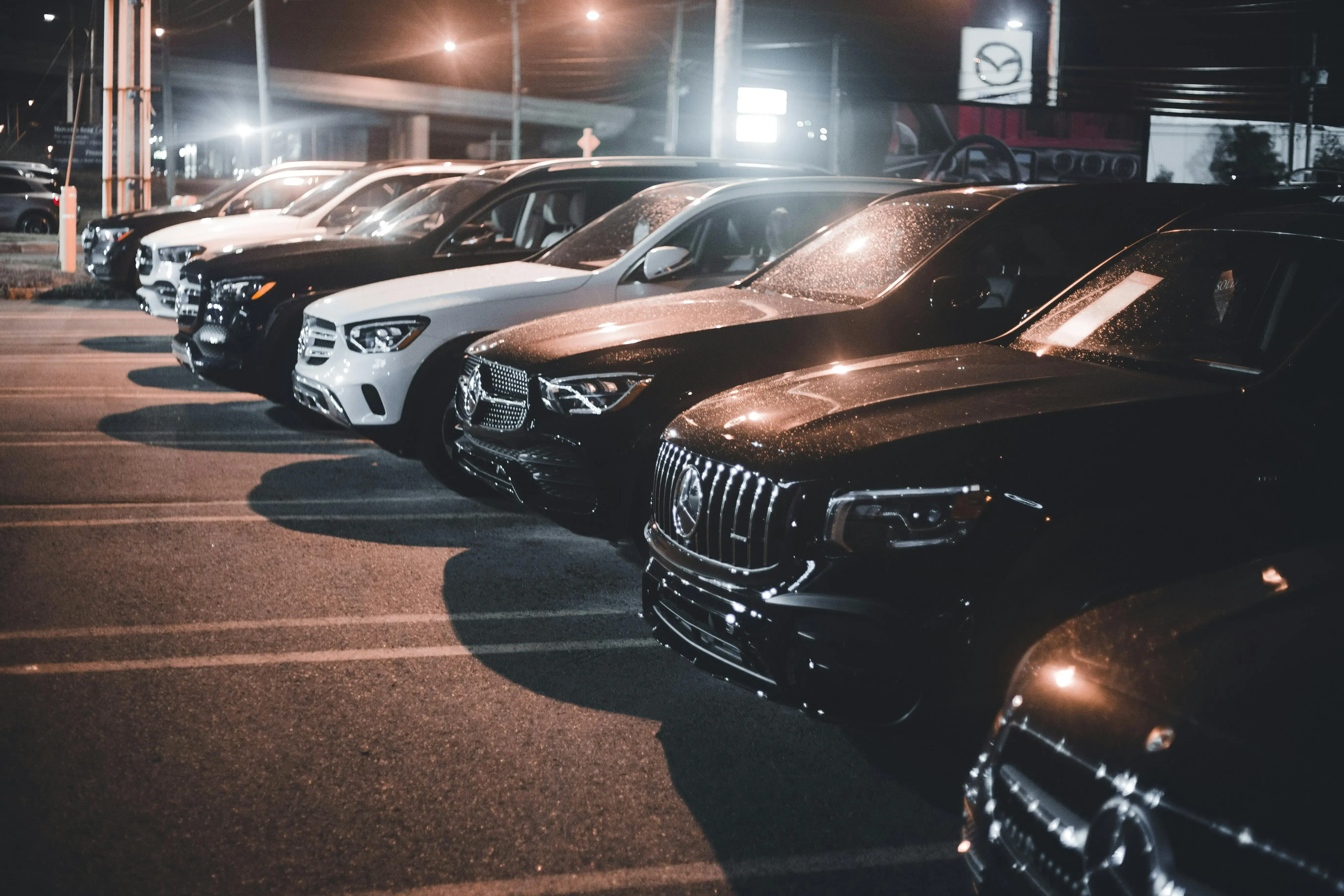Ship Classic Cars to Panama: 2025 Guide to Age Limits & Permit Rules
Classic and collector vehicle imports to Panama present unique challenges beyond standard vehicle shipping—understanding age restrictions, special permit requirements, customs complexities, and practical considerations enables realistic planning for enthusiasts and collectors contemplating Central American classic car relocation. While Panama generally restricts vehicle imports to relatively recent models under de facto 10-year age guidelines, limited pathways may exist for genuine classic and collectible vehicles meeting specific qualifications, though requirements remain complex, expensive, and subject to discretionary approval.
West Coast Shipping provides specialized classic vehicle shipping services from our California, Florida, and New Jersey facilities, offering enclosed container protection, professional documentation assistance, customs coordination, and guidance navigating Panama's complex classic car import framework. This comprehensive guide addresses Panama's age restriction framework, classic vehicle exceptions, required documentation, cost implications, alternatives to classic imports, and realistic expectations for collectors and enthusiasts evaluating Panama classic car shipping feasibility.
Disclaimer: Panama import laws, permit requirements, and customs procedures are subject to change. The information in this article reflects current practices as of 2025, based on observed cases and broker experience. Always verify requirements with a licensed customs broker and Panama’s Autoridad Nacional de Aduanas before making import decisions.
Understanding Panama's Age Restriction Framework
Panama's vehicle import regulations establish age limitations affecting most passenger vehicle imports—though exact enforcement varies creating confusion among potential importers.
Standard Age Limitation Enforcement
While official regulations sometimes present conflicting information across sources, practical enforcement typically limits mainstream passenger vehicle imports to 10 years or newer from manufacturing date.
Current Age Restriction Reality:
-
De Facto Guideline: 10-year maximum age from manufacturing date for standard passenger vehicles
-
Applies To: Cars, SUVs, light trucks, and vans used for regular transportation
-
Manufacturing Date Critical: Age calculated from actual manufacture date (not model year)
-
Enforcement Consistency: Generally consistent but with occasional variations
Manufacturing Date vs Model Year: A 2016 model year vehicle manufactured in late 2015 may face different treatment than one built in early 2016—always verify actual manufacturing date from factory documentation or VIN decoding rather than relying on model year designations.
Regulatory Sources Conflict: Different information sources report varying age limits ranging from "no age restrictions" to "10-year limits" to "15-year limits"—this conflicting information reflects regulatory ambiguity rather than clear established law, requiring direct verification with Panama customs authorities for specific situations.
Why Age Restrictions Exist
Panama's age import limitations serve multiple policy objectives affecting acceptability of older vehicle imports.
Policy Rationales:
-
Emissions Standards: Newer vehicles generally meet stricter emissions requirements than older models
-
Safety Technology: Modern vehicles incorporate advanced safety systems (airbags, stability control, crash structures)
-
Parts Availability: Newer vehicles have better parts availability supporting ongoing maintenance
-
Fleet Modernization: Encouraging newer vehicle fleet reduces environmental impact and improves safety
-
Tax Revenue: Newer vehicles generate higher tax revenue through elevated valuations
Regional Consistency: Central American nations including Costa Rica, Nicaragua, and Honduras implement similar age-based import restrictions—Panama's framework aligns with broader regional policies.
Enforcement Variations and Exceptions
Age restriction enforcement occasionally varies by vehicle characteristics, origin, and specific customs officer interpretation.
Variation Factors:
-
Vehicle Type: Luxury vehicles may receive different treatment than economy models
-
Origin Country: European or Japanese imports versus U.S.-market vehicles
-
Collector Status: Genuine classics with historical significance versus simply old vehicles
-
Customs Officer Discretion: Individual inspector judgment affects specific case outcomes
Verification Imperative: Given regulatory ambiguity and enforcement variations, direct verification with experienced Panama customs brokers or direct Panama customs contact provides most reliable guidance for specific vehicle import plans.
Learn complete Panama import eligibility requirements in our vehicle restrictions guide.
Classic Vehicle Import Pathways
Limited exceptions may exist for vehicles exceeding standard age limits when qualifying as classics or collectibles—though requirements remain complex, expensive, and subject to discretionary approval.
Classic Status Qualifications
Vehicles potentially qualifying for classic consideration must meet specific age, condition, and significance criteria.
Classic Qualification Criteria:
Age Threshold: Vehicles typically 25+ years old may qualify for classic consideration
-
25-year minimum represents common threshold though not universally codified
-
Age alone insufficient—must meet additional criteria
-
Manufacturing documentation proving age required
Historical Significance: Documentation proving historical importance or collectible value
-
Limited production models with documented scarcity
-
Historically significant vehicles (racing heritage, celebrity ownership, design milestones)
-
Factory documentation establishing special status
-
Period-correct originality or professional restoration
Collectible Registry: Registration with recognized classic car organizations
-
Classic Car Club of America (CCCA) recognition
-
Antique Automobile Club of America (AACA) membership
-
Manufacturer-specific registry documentation (Porsche Classic, Ferrari Classiche)
-
International classic vehicle appraisal organization certifications
Original Condition: Well-maintained original condition or professional restoration documentation
-
Numbers-matching drivetrain components
-
Period-correct specifications without non-original modifications
-
Professional restoration documentation when applicable
-
Detailed maintenance and service history
-
Photographic documentation of condition and originality
Special Permit Requirements
Classic vehicle imports exceeding standard age limits require additional permits beyond routine import documentation—though formal processes remain poorly documented in public customs resources.
Permit Process Elements:
-
Additional Applications: Specialized permit requests filed with Panama authorities
-
Supporting Documentation: Comprehensive package establishing classic status
-
Authority Review: Panama officials evaluate classic qualifications discretionarily
-
Physical Inspections: Potential on-arrival inspections verifying claimed condition
-
Approval Uncertainty: No guarantee permits granted even with thorough documentation
-
Timeline Extensions: Permit processes add weeks or months to import timelines
Permit Process Reality: Panama's classic vehicle permit framework is not formally outlined in public customs databases or published regulations—instead, these cases are typically handled privately through experienced customs brokers familiar with informal procedures and official contacts. This lack of formal documentation makes working with expert brokers essential rather than optional for classic import attempts.
Discretionary Approval Reality: Classic vehicle permits appear limited and subject to significant discretionary judgment—success not guaranteed regardless of documentation quality or vehicle significance.
Required Classic Vehicle Documentation
Classic imports require specialized documentation substantially exceeding standard vehicle import requirements.
Classic Documentation Package:
Professional Appraisals:
-
Certified appraisal from recognized classic vehicle appraiser
-
Detailed condition report with photographic documentation
-
Market value assessment with comparable sales research
-
Authentication of claimed historical significance
-
Restoration documentation when applicable
Appraisal Importance: While not always formally mandatory under published regulations, professional appraisals are highly recommended to avoid valuation disputes with Panama customs officials and to justify CIF calculations. Customs authorities have discretion in valuation assessments—comprehensive third-party appraisals provide objective documentation supporting declared values and can prevent arbitrary upward adjustments that increase duty obligations.
Historical Significance Proof:
-
Factory build sheets or archival documentation
-
Period advertising materials or factory communications
-
Racing history documentation (entry forms, results, period photos)
-
Previous ownership documentation (titles showing ownership chain)
-
Published references in automotive literature
Registry Documentation:
-
Classic car club membership certificates
-
Manufacturer registry documentation
-
Concours participation records
-
Authentication certificates from marque experts
-
Historic vehicle registration plates (where applicable)
Restoration Documentation (if restored):
-
Before-and-after photographic documentation
-
Professional restoration shop receipts and work orders
-
Parts sourcing documentation establishing period-correct components
-
Expert authentication of restoration quality
-
Preservation of original components when replaced
Ownership Chain:
-
Complete title history from original registration
-
Bill of sale documentation through ownership changes
-
Clear current title without liens or salvage designations
-
Export clearance from origin country
Cost Implications of Classic Imports
Classic vehicle imports face elevated costs beyond standard vehicle shipping—understanding complete financial implications prevents surprises.
Import Duty and Tax Structure
Classic vehicles face Panama's standard import tax framework plus potential luxury surcharges—though exact rates on high-value vehicles vary by case.
Tax Components:
Import Duties: 15-25% of CIF (Cost, Insurance, Freight) value depending on vehicle specifications
-
CIF calculation includes vehicle purchase price plus shipping costs plus cargo protection
-
High-value classics trigger elevated duty percentages
-
Customs valuation uses professional appraisals when provided
ITBMS Tax: 7% value-added tax calculated on duty-inclusive value
-
Applied after duty assessment
-
Non-negotiable regardless of classic status
-
Based on total CIF value plus assessed duties
Luxury Tax: Additional surcharges on high-value vehicles have been observed in practice, though rates are not consistently documented in public customs resources
-
Reported rates typically range 5-10% when applied
-
Triggered when vehicle values exceed luxury thresholds (exact thresholds vary)
-
Classic Ferrari, Porsche, Mercedes-Benz often affected
-
Applies even when classic permits granted
-
Actual assessment determined case-by-case by customs officials
Customs Processing Fees: Various port charges and administrative costs
-
Standard for all imports
-
Special permit processing may incur additional fees
Cost Example Calculation
Understanding complete cost structures enables realistic budgeting.
Example: 1965 Porsche 911 valued at $120,000
Shipping Costs (New York to Cristobal):
-
Ocean freight: $2,750
-
U.S. inland transport: $800
-
Export documentation: $300
-
Total shipping: $3,850
CIF Value: $120,000 + $3,850 = $123,850
Panama Import Taxes:
-
Import duty (20%): $24,770
-
Duty-inclusive value: $148,620
-
ITBMS tax (7%): $10,403
-
Luxury tax (5%): $7,431
-
Customs processing: $400
-
Total taxes/fees: $43,004
Additional Classic Import Costs:
-
Professional appraisal: $800
-
Historic documentation research: $1,200
-
Special permit processing: $600
-
Customs broker premium services: $900
-
Additional classic costs: $3,500
Total Import Cost: $120,000 + $3,850 + $43,004 + $3,500 = $170,354
Cost Calculation Notes: The luxury tax shown ($7,431 at 5%) reflects observed practice in similar high-value classic imports, though exact luxury surcharge rates and thresholds are not consistently documented in public customs resources. Actual luxury tax assessment—if any—would be determined by Panama customs officials during import processing. Consult with experienced Panama customs brokers for case-specific projections based on your vehicle's characteristics and value.
Cost Reality: Classic import costs can add 35-50% to purchase price—substantially more than simply purchasing locally when factoring shipping, taxes, and classic permit expenses.
See complete duty calculation methodology in our Panama duty guide.
Hidden Costs and Considerations
Beyond standard taxes and shipping, classic imports face additional expense categories.
Ongoing Costs:
-
Parts Availability: Classic vehicle parts often unavailable in Panama requiring U.S. or European sourcing
-
Specialized Service: Limited Panama mechanics with classic vehicle expertise
-
Climate Challenges: Tropical humidity affects classic vehicles requiring specialized storage
-
Modified Expectations: Hot/humid climate may require mechanical modifications (cooling, electrical)
Potential Delays:
-
Extended Timelines: Classic permit processing adds weeks or months
-
Carrying Costs: Storage fees during extended customs clearance
-
Multiple Inspections: Additional scrutiny versus standard imports
-
Documentation Requests: Potential for multiple information requests extending processes
Registration and Compliance Requirements
Classic imports clearing customs still require Panama ATTT registration before legal road use.
ATTT Inspection Standards
Panama's Autoridad del Tránsito y Transporte Terrestre conducts safety and emissions inspections on all imports including classics.
Inspection Components:
-
Safety Systems: Functional brakes, steering, suspension, lighting
-
Emissions Testing: Though standards for classics may differ from modern vehicles
-
VIN Verification: Matching all documentation to physical vehicle
-
General Roadworthiness: Overall condition assessment
Classic Vehicle Challenges: Original classic vehicles may lack modern safety equipment (airbags, ABS, stability control) or emissions controls—unclear whether exemptions exist for genuine period-correct classics.
Parts Availability Concerns
Long-term classic vehicle ownership in Panama requires consideration of parts availability and service capabilities.
Panama Classic Car Market:
-
Limited Classic Community: Small enthusiast community versus U.S. or European markets
-
Parts Sourcing: Most classic parts require U.S. or European ordering
-
Mechanic Expertise: Few Panama mechanics specialize in classic vehicles
-
Service Costs: Specialized work commands premium pricing
-
Climate Challenges: Tropical conditions accelerate deterioration without proper storage
Realistic Assessment: Consider whether Panama provides suitable environment for classic vehicle enjoyment given limited support infrastructure, climate challenges, and parts availability constraints.
Alternatives to Classic Vehicle Imports
Given complexity and costs, alternatives may better serve collectors and enthusiasts.
Purchase Modern Collectible Instead
Vehicles under 10 years qualifying as modern collectibles avoid classic permit complexity.
Modern Collectible Options:
-
Limited production sports cars (Porsche GT3, Ferrari 488 Speciale)
-
Modern classics with investment potential but under 10 years
-
Low-mileage performance vehicles
-
Special editions with collectible status
Advantages: Standard import procedures, better parts availability, modern safety/emissions compliance, climate-appropriate engineering.
Temporary Import for Tourism
Short-term Panama visits may enable temporary vehicle imports avoiding permanent import requirements.
Tourist Import Framework:
-
Carnet de Passages systems for temporary vehicle entry
-
30-90 day temporary permits depending on visitor status
-
Vehicle must leave Panama within authorized period
-
Avoids permanent import taxes and registration
Application: Suitable for cross-continental drives, short-term residence, or vehicle tourism rather than permanent relocation.
Pursue Classic Ownership in U.S. or Europe
Maintain classic vehicle ownership in jurisdictions with better support infrastructure.
Alternative Strategies:
-
Keep classics in U.S. climate-controlled storage during Panama residence
-
European storage when visiting Panama temporarily
-
Classic car rental for occasional enthusiast experiences
-
Participation in international classic events without ownership complexities
West Coast Shipping Classic Vehicle Services
Despite challenges, West Coast Shipping provides specialized support for collectors pursuing Panama classic imports.
Protected Transport Services
Classic vehicles require premium protection throughout international shipping.
Container Protection:
-
Enclosed container shipping preventing salt spray, weather, sun exposure
-
Professional securing using soft straps and custom blocking
-
Climate-controlled facilities reducing humidity exposure
-
Minimal handling (loaded once, unloaded once)
-
Photographic documentation of condition before/after transit
Departure Port Options:
-
New York to Cristobal: $2,750, 6-day ocean transit
-
Florida to Cristobal: $4,475, 5-day ocean transit
-
California to Cristobal: $4,400, 13-day ocean transit
Documentation Assistance
Our experienced team provides guidance gathering classic vehicle documentation.
Documentation Support:
-
Consultation on required appraisals and authentication
-
Review of historical significance documentation
-
Coordination with classic registry organizations
-
Commercial invoice preparation meeting Panama standards
-
Export documentation with meticulous VIN verification
Customs Coordination
Experienced Panama customs broker partnerships navigate classic import complexities.
Broker Services:
-
Classic permit application coordination
-
Communication with Panama authorities
-
Supporting documentation presentation
-
Inspection scheduling and representation
-
Timeline management and status updates
Explore our comprehensive Panama shipping services including classic vehicle specialization.
Realistic Expectations for Classic Imports
Collectors contemplating Panama classic imports should maintain realistic expectations about complexity, costs, timelines, and success likelihood.
Success Factors
Classic imports most likely to succeed demonstrate:
-
Exceptional Significance: Truly historically important vehicles with comprehensive documentation
-
Professional Preparation: Complete documentation packages with expert appraisals
-
Financial Commitment: Willingness to absorb 35-50% cost premiums over purchase price
-
Timeline Flexibility: Acceptance of extended timelines potentially spanning months
-
Broker Partnerships: Engagement of highly experienced Panama customs brokers
-
Backup Plans: Contingency strategies if permits denied despite preparation
When to Reconsider
Classic import may not be worth complexity when:
-
Marginal Classic Status: Vehicles only marginally meeting classic thresholds
-
Cost Sensitivity: Import costs making purchase financially impractical
-
Timeline Constraints: Requiring predictable timelines for vehicle availability
-
Climate Concerns: Vehicles requiring climate control Panama can't easily provide
-
Limited Stay: Uncertain long-term Panama residence plans
-
Alternative Availability: Similar vehicles available locally without import complexity
Professional Consultation Value
Given regulatory complexity and discretionary approval processes, professional consultation proves essential.
Recommended Steps:
-
Consult experienced Panama customs broker before purchase
-
Verify current classic import feasibility directly with Panama authorities
-
Obtain professional appraisal and documentation review
-
Calculate complete cost projections including all fees
-
Evaluate alternatives against classic import complexity
-
Proceed only with realistic expectations about approval likelihood
For complete information about shipping methods, costs, and timelines, reference our complete guide to shipping cars to Panama.
Calculate Your Classic Car Shipping Costs
Whether you're shipping a classic collector vehicle to Panama or exploring alternatives, West Coast Shipping provides specialized consultation and services.
Contact our Panama shipping specialists for:
-
Classic vehicle shipping consultation and feasibility assessment
-
Professional documentation guidance and review
-
Protected container shipping with premium handling
-
Customs broker coordination for classic permit applications
-
Complete U.S. export and Panama customs documentation
-
Transparent cost projections including all fees
Our team provides honest assessment of classic import feasibility based on your specific vehicle and circumstances—helping you make informed decisions about Panama classic car shipping.
You May Also Like
These Related Stories

Panama Car Dealerships & Import Pipeline: How Vehicles Reach Panama

How To Choose A Used Car Dealer In Panama City: Importer's Guide

-093789-edited.png?width=220&height=79&name=wcs_final_logo_(1)-093789-edited.png)
